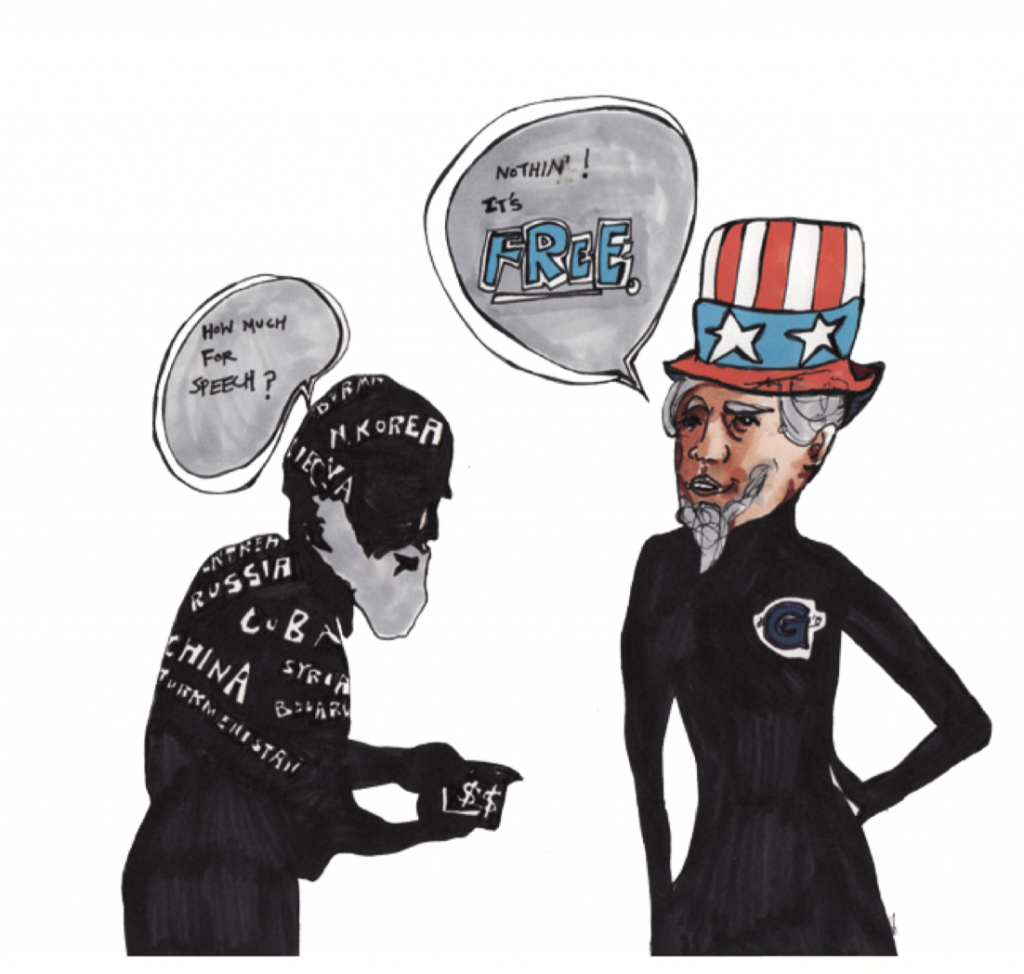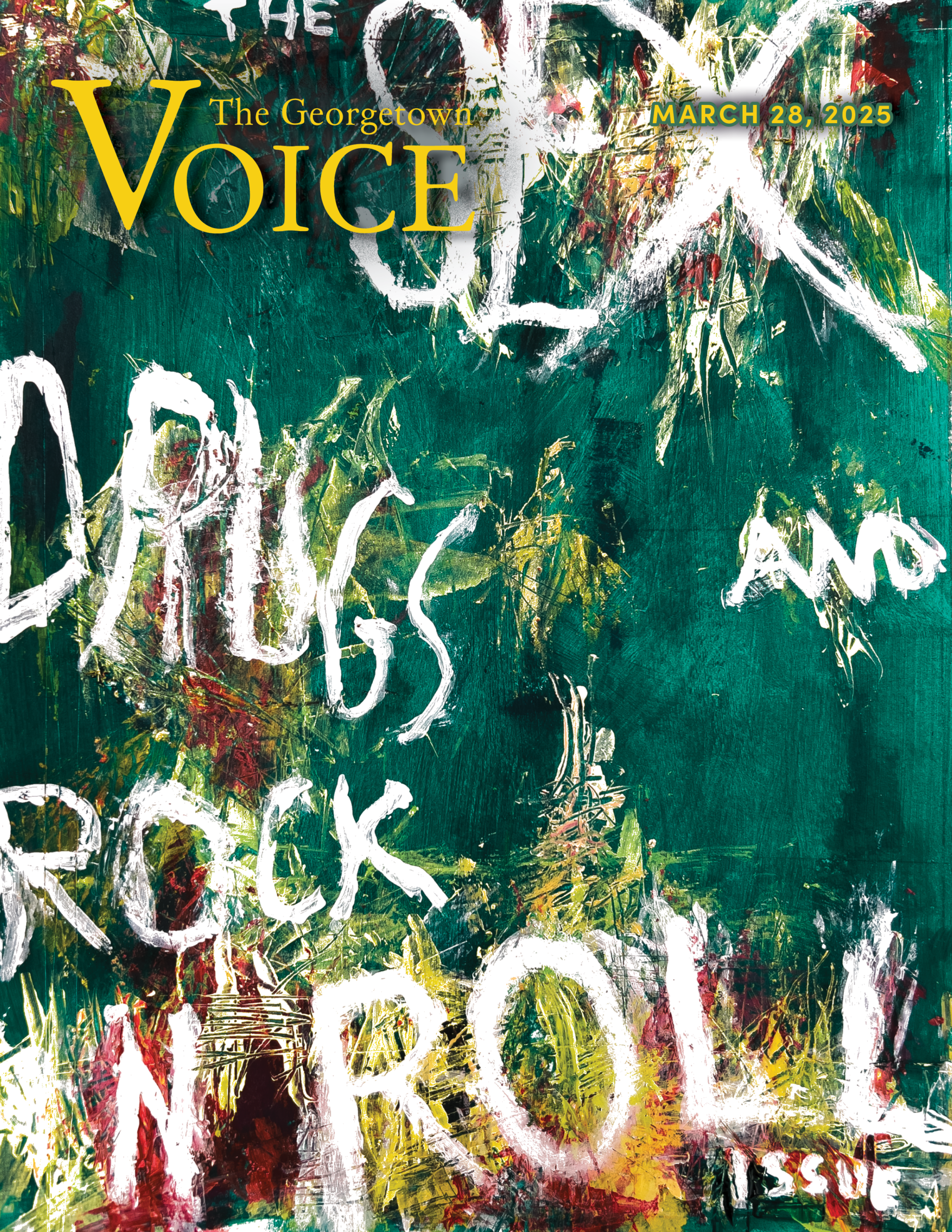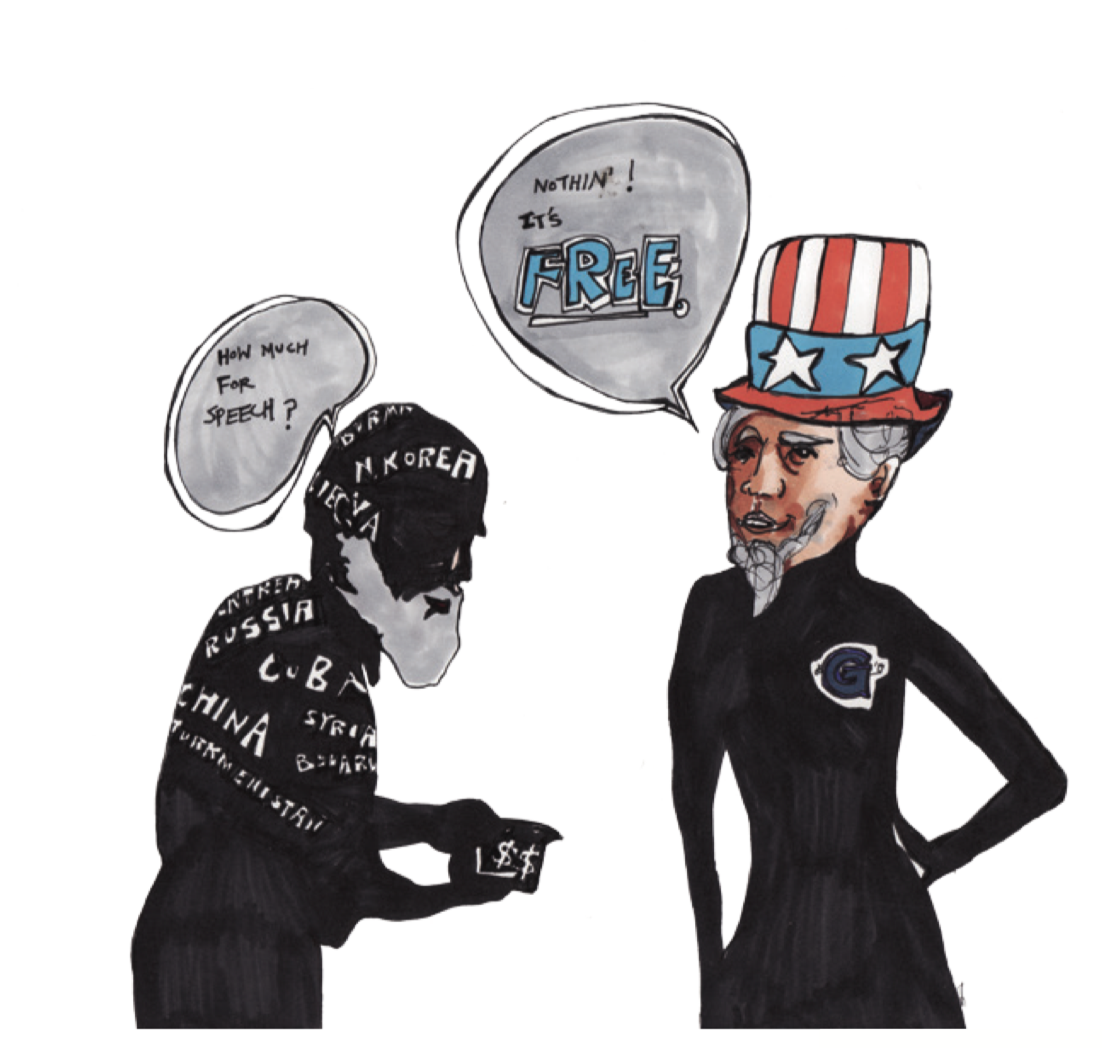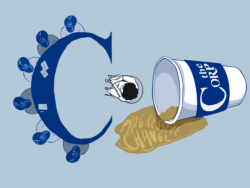
Samantha Lee
We have a duty to offend. That duty does not fall to me, to you, or to any one individual—but make no mistake that it does fall to us. As with all issues that require collective action, we cannot afford to ignore that this duty is imperative.
This idea is by no account novel. The great philosophers of ancient Greece were acutely aware of the necessity to provoke society into questioning its hierarchies, its laws, and its values. Socrates called himself a gadfly, an annoying creature which stings society into consciousness of itself, impelling the society to re-examine what it does and what it ought to do. To actualize his vision, Socrates paid a high price, but his message was not lost. Long after his time, his admonition to induce continual societal introspection has lived on and thrived.
In its nascence, civil discourse was limited to matters that were deemed of no concern to the common people. Candid commentary on such weighty issues as governance, morality, or policy was exclusive to the stately marble halls of patricians, aristocrats, or whichever class was endowed with the privilege to rule. Gradually, civil discourse found its way outside these elite institutions and into the homes of the many—sometimes in trickles, other times in waves.
Time progressed, and this discourse grew from those initial experiments of hushed speech to the unremitting and thunderous assertions of today’s talking heads that are broadcast globally and instantaneously. At no small expense, speech became a phenomenon that was accessible to the many. The 17th century saw the British Bill of Rights allow for legally unimpugnable speech on the floor of Parliament. A century later, the French National Assembly set forth a Declaration of the Rights of Man and Citizen that claimed unhindered speech as a birthright and not a gift from a sovereign. Most recently, the United States Bill of Rights set into law the unambiguous right of the American citizen to act unrestrained by government with bold and unjustified speech, an ideal backed by the force of law.
My aim in this chronology is simply to bring forward the sharp contrast between the state of free speech as an aspirational end in times past and free speech as, at best, an arbitrary means among students at Georgetown. Throughout previous centuries, blood was spilled, monarchs were toppled, and popular assemblies were convened in the hope of someday achieving unrestricted speech. Today, far too many Georgetown students view free speech as a threat to some more noble and remarkably (though unsurprisingly) elusive goal.
When begrudgingly articulated, this ambiguous goal often takes the form of some newfound right to proceed through academic inquiry with one’s sensibilities unoffended. Too often among campus organizations, free speech is invoked only when convenient as a political instrument of the group or cause du jour. What this means-centric mindset fails to appreciate is the very basis for the conception of free speech: by advocating unhindered speech only in support of one’s own personal inclinations, one has adopted a de facto preemptive censorship. When speaking of censorship, it becomes tempting to appeal to legal protections rather than weigh the merits of free speech itself. We must as individuals proactively embrace free speech in Georgetown’s policies and, more importantly, in our dealings with one another.
Unfortunately, though our university has strong protections of free speech in its rules (from an objective, historical perspective), we Georgetown students have a less-than-stellar track record in its practice. The heckling of General David Petraeus during his 2010 speech, the disruption of World Bank President Dr. Jim Yong Kim by GU Fossil Free, the calls for disinvitation of Secretary of Health and Human Services Kathleen Sebelius as a commencement speaker in 2012, and perhaps most egregiously, the exhaustive efforts to mitigate a speech on feminism by Dr. Christina Hoff Sommers just last year each instantiate the culture of free speech on campus: a hinderance to our more important, subjective goals. It is this culture that is far more damaging than any university policy that allows a single vocal club to engage in free speech but withholds express university endorsement and material support.
It is not sufficient that, when confronted with a message deemed ill-conceived (to give a milder tone to the language used by predominant student pundits), we respond by quickly reiterating the opposing individual’s right to speak while simultaneously demanding the quarantine of the undesired speech and institutional denunciation of the speaker. The interjection of warnings before certain speech considered to be so grave as to trigger incalculable mental distress in any who may be so unfortunate as to suffer knowledge of it is but another example of our hollow words in support of free speech.
We maintain our elaborate institutional safeguards while undertaking as individuals extensive precautions to neutralize the substance of this very same free speech by constructing trigger warnings and “safe” spaces, demanding to rescind invitations, and launching crude but effective efforts to simply be louder than the undesirable speaker. To create a safe space devoid of free speech or permit an opt-out system is to say that free speech itself is dangerous and must be curtailed. To claim that this is a praiseworthy example of the practice of free speech is to make a mockery of its substantive value and be complacent with intellectual dishonesty.
To treat free speech as more than a pro forma observance and to practice it as individuals is to come face to face with those very discomforting words from which it has become not only acceptable but admirable to shield oneself. To hear them in their entirety, as harsh or unwelcoming as they may be is the duty that each of us has if we are to say we support free speech.
It is our obligation to be offended, for without being offended we cannot truly know our own values, beliefs, or limitations but simply succumb to the echo chamber that has become all too commonplace in academia. More importantly, it is our duty to offend—to say those things that others do not want to hear. To do this, we must make a collective effort to dispel the idea of a right to feel secure in our own thoughts and emotions, for surely, no such right exists. To engage in this effort, the endangered vestige that is free speech must once again be viewed by us, the students of Georgetown, as something more than a procedural formality. For, to develop a more ethical and informed individual, university, or society, and to formulate our own responses we must first hear what is being said by those with whom we could not disagree more.
Joe DiPietro is a sophomore in the College.







You forgot to mention The Voice disappearing down the memory hole Zoe Dobkin’s piece on her decision to participate with GUSA and the admin in their sexual assault policy review process, or Dayna’s decision to remove Dylan Cutler’s cartoon.
What a fantastic piece of writing. It’s nice to see that the lessons learned by my generation are not completely lost on the current generation. It’s important that unpopular speech is not banned.
A challenged concept, sharpens the mind. It’s important for students to learn how to understand conflicts and make compelling arguments, as that is what they will face in the ‘real world’.
We have convinced ourselves that our beliefs concerning race and gender and so on are correct and timeless. We have it all figured out.
And if we now the truth of these things, why allow alternate opinions? That’s just allowing false ideas to be propagated, and what good can come of that?
The fact that each generation brings forth new — and sometimes radically different — versions of the “truth” doesn’t phase us in our belief that this time we’ve got it right this time.
Wonderfully done. No, you don’t have it right this time. We got it right the year I graduated, 1966. Funny thing. Juniors were supposedly more informed than freshmen. But once you graduate, you become an idiot.
Bravo!
This young man is a sophomore? The first thought that crossed my mind when I finished was whether he was home-schooled. He thinks and writes like he is not the product of a government school.
Congratulations. You have a wonderful future ahead of you.
Keep going and don’t forget the Japanese saying, “The nail that stands different than the rest gets hammered into place.”
Mr. DiPietro:
Nice article. Just don’t ever turn in your English assignment: https://www.thefire.org/in-troubling-opinion-federal-judge-dismisses-free-speech-lawsuit-against-oakland-university/
Just a quick reminder that that the French bill and the US Bill of rights were nearly contemporary.
One was first.
The Declaration of Independence preceded both, and forcefully argued that our rights do not come from government, but from our Creator.
Well done, I was wondering if there was anyone left on our college campuses who wasn’t totally brainwashed to follow the herd.
Joe – Excellent. Like Fran Leibowitz said ” Being offended is a natural consequence of leaving the house” Go out int he world, offend, be offended. It is part of being an adult who can process critical thought and articulate those thoughts. I sense the tide is beginning to turn on the morons at the gate.
Maybe its a sign of my age, or perspective, but I’m rarely offended in the day to day activities of my life. Its only when you get to the political realm where ideas are exchanged that some participants believe ad hominem attacks are useful that I get offended. Try saying you think Islam is incompatible with the Constitution, especially in a liberal environment, and you’ll see what I’m talking about. But then again, the Army trained me to believe that any day I had food, a warm dry place to sleep and nobody shot at me, that was a good day.
And this alumnus was worried that Georgetown would be falling to the anti-speech mobs so common on campuses today. It is heartening to hear Hoyas calling them out.
Well advocated, Mr. DiPietro. Keep speaking sense to nonsense.
Trigger alert!!!
Bravo! I’ll be curious to see what kind of backlash or support your article receives. Back many decades ago when I was in my high school’s debate society, it was taken for granted that we needed to consider all sides of a contentious issue. We would be randomly assigned to the pro or con position on a debate topic, and expected to marshall the best arguments and facts that we could to advance that position, regardless of our personal opinions. It was an excellent way to develop critical thinking abilities and speaking skills.
These days it seems there are too many college students who are terrified to peek out of the politically correct opinion bubble that they’ve surrounded themselves with. They might be “triggered” by a slightly different point of view and thereby feel “unsafe”. How sad for them. How sad for our society. But good for you for challenging those petrified snowflake students, and trying to push them out of their arftificial comfort zone.
“Anti PC culture” consists mostly of white people complaining that they can’t say whatever the hell they want without repercussion anymore. They realize that self-defense is the only thing that legitimizes aggression, so they reframe their silencing of minority voices that threaten the status quo as “defense” of their “besieged free speech.” You can’t have amicable academic disagreement when one side’s argument is based denying the other’s humanity or right to exist, (see black lives matter, feminist movements, literally any community being screwed over by those in power) and you can’t claim victimhood when you have all the power.
Kieran McLean: “You can’t have amicable academic disagreement when one side’s argument is based denying the other’s humanity or right to exist, (see black lives matter, feminist movements, literally any community being screwed over by those in power) and you can’t claim victimhood when you have all the power.”
RULE #3: Social Justice “Warriors” always project (their own desires onto others).
The movements cited exemplify the attitude supposedly being complained about. Or perhaps Kieran has forgotten the shameful Leftist opposition to the phrase “All lives matter”?
It starts with destroying speech, and books. It never ends there.